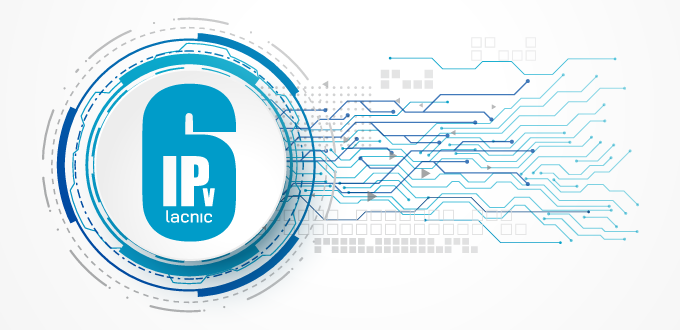IPv6 Challenge: “Things Can Be Done Well in Venezuela”
29/11/2018

Inter (Corporación Telemic) took the second place in LACNIC’s IPv6 Challenge for its project for IPv6 deployment in Venezuela.
Inter’s IPv6 deployment work began in the core of its network and is now being extended to 300,000 end customers in different Venezuelan cities.
The project’s development, planning and configuration was led by Geraldo Nakabe (Chief of Operations at Inter) and Luis Velazco (IP Operations Engineer), and was supported by the entire IP operations team, as well as by the company’s operations managers and vice president of operations and engineering.
In dialogue with LACNIC News, Nabake highlighted that Inter’s work for the contest, which was created to promote IPv6 deployment within the region, allowed them to demonstrate that in Venezuela “things can be done well.”
What lessons would you highlight from your participation in the IPv6 Challenge? What can you tell us about Inter’s initiative that received the prize?
At the technical level, learning was very valuable, rewarding, and above all, enjoyable and entertaining. Results are always positive when you enjoy the work you do. The initiative consisted of deploying IPv6 in the core of Inter’s network as a first step to move towards full deployment to more than 300,000 subscribers nationwide. We understand it is not an easy path and there is still a lot of work to be done, but we are confident that we will achieve our goal. Through this project, we managed to implement dual-stack (IPv4 and IPv6) operation in the 19 largest cities of the Inter network.
This prize makes us very happy and represents a significant recognition, as we were able to demonstrate that things can be done well in Venezuela, and that we have very valuable and prepared people who believe in the country and who are contributing to a better Venezuela.
What IPv6-related progress has your team been able to implement in the ISP based on this initiative?
We are currently working on tests to start working on configurations in cities where we have dual stack, as well as on configuring IPv6 in test DNS servers. Additionally, we have content servers from Google, Facebook and Akamai, which have IPv4 BGP sessions. We will also be preparing IPv6 BGP configurations soon.
What is the current status of IPv6 deployment in Venezuela?
In general, IPv6 deployment in Venezuela is relatively low as few national service providers have implemented IPv6 in their networks, and the situation is similar in the academic sector, except for a few student projects and local deployments through private initiatives.
What are the main administrative and technical difficulties faced by IPv6 deployment?
The main difficulties are of an economic and administrative nature, due to government restrictions in accessing foreign currency. In turn, this causes technical difficulties because it is very difficult to update our equipment, modernize our platforms, purchase licenses and spare parts, and secure technical support contracts. One of our biggest difficulties has to do with activating licenses for provisioning servers in order to have IPv6 support at national level
Do you think Venezuela and Latin America are truly aware of IPv4 exhaustion and the need to use IPv6 to sustain Internet growth and connect the unconnected?
Although there is knowledge about IPv4 address exhaustion, there is a need for greater awareness of the future consequences and the risk for service operators to be left out of business given the sustained global growth and the expansion of the IoT. Because NAT has delayed the process of IPv4 address exhaustion, there is still time to adapt our networks to the changes to come.

IP Operations Team at Inter. Right to left: Rafael Aguilar, David López, Alejandro de La Torre, David Schibli, Luis Velazco, Philip Rodriguez, Geraldo Nakabe, Norberto Pérez and Leonardo Zambrano.
(Free access, no subscription required)